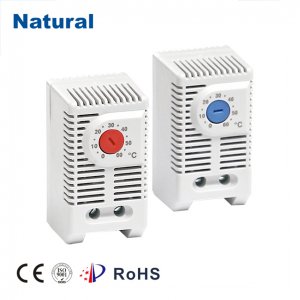文章:

Humidity is a critical factor that influences our daily lives in more ways than we might realize. Whether you are at home, in the workplace, or in an industrial setting, maintaining the right level of humidity is essential for comfort, health, and the proper functioning of various processes. Temperature controllers play a vital role in achieving and maintaining optimal humidity levels, ensuring that we can live and work comfortably while also preserving the integrity of products and equipment. Understanding the Significance of Humidity Control Humidity refers to the amount of moisture present in the air. It is commonly expressed as a percentage and plays a crucial role in our environment. High humidity can make us feel uncomfortable and sticky, leading to problems like mold growth, corrosion, and reduced air quality. On the other hand, low humidity can cause dry skin, respiratory issues, and damage to wood and electronic equipment. Temperature Controllers: The Unsung Heroes Temperature controllers are devices designed to regulate temperature, but they also indirectly control humidity. Here’s how they work: Consistent Temperature Control:Temperature controllers monitor and adjust the temperature of an environment, ensuring it remains within a specified range. This consistent temperature helps to regulate the air’s moisture-holding capacity, preventing excessive condensation or evaporation of moisture. Preventing Condensation:When the temperature drops, warm air can hold less moisture, potentially causing condensation on surfaces. Temperature controllers prevent this by maintaining a stable temperature, minimizing the risk of moisture-related damage. Enhanced Comfort:In homes and offices, temperature controllers help maintain a comfortable indoor environment by preventing extreme temperature fluctuations and excessive humidity, which can lead to discomfort and reduced productivity. Industrial Applications:In industrial settings, precise humidity control is critical for manufacturing processes, product quality, and the longevity of equipment. Temperature controllers help maintain the ideal conditions for these operations. The Advantages of Modern Temperature Controllers Modern temperature controllers come equipped with advanced features and technology that make them even more effective at managing humidity: Digital Precision:Digital temperature controllers offer precise control over both temperature and humidity, ensuring consistent and reliable performance. Remote Monitoring:Many controllers can be accessed and adjusted remotely, making it convenient to manage humidity levels, especially in large or hard-to-reach areas. Energy Efficiency:Energy-efficient controllers help reduce power consumption while maintaining optimal conditions, leading to cost savings and reduced environmental impact. Integration:Temperature controllers can be integrated into larger building management systems, allowing for centralized control and automation. Conclusion Temperature controllers are indispensable tools for managing humidity levels effectively. Whether it’s for personal comfort, industrial processes, or preserving valuable assets, these devices play a pivotal role in ensuring that humidity remains within the desired range. As technology continues to advance, temperature controllers will only become more sophisticated and essential for maintaining the balance of moisture in our environments, contributing to our well-being and the longevity of our equipment.